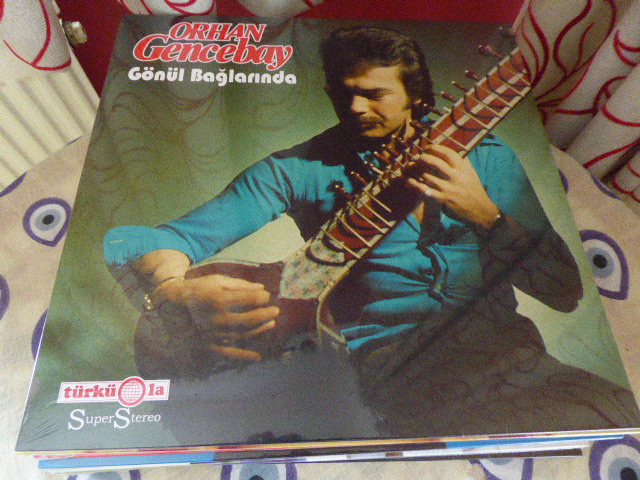Considered to be the heart of multiple civilizations, the Bosporus is an international waterway connecting the European and Asian sides of Istanbul. A waterway in the heart of a bustling city, it offers a dynamic setting for a busker scene that can be enjoyed during the daily passenger ferries of both locals and tourists.
Throughout history, the Bosporus strait has been a focal point for empires, trade, and culture. Until now, it remains to do so, especially with the cultural aspect as it showcases the Turkish music culture hosting a diverse range of musical expressions.
Accordingly, this makes one wonder about the different fusions, influences, and the different artistic expressions explored over time. In this article, we will delve into some prominent Turkish music genres and unravel their linguistic origins, shedding light on the diverse roots of Turkish musical tradition which the Bosporus Strait witnessed.
1. Türkü

Türkü, meaning “folk song” in Turkish, holds a special place in the hearts of Turkish people.
These songs, characterized by their heartfelt melodies and poetic lyrics, reflect the emotions, stories, and traditions of the Turkish people. Stemming from the Turkish language, Türkü captures the essence of Turkish culture and history, offering a glimpse into the lives of its people throughout the ages.
Turkish folk music is divided into two primary sources: türkü singers and âsiks. Türkü singers showcase their talent by performing songs in diverse celebrations, rituals, religious gatherings, and even funerals. Over time, they infuse these songs with their own creativity, introducing new words and melodies. On the other hand, âsiks are true artists who craft their own masterpieces, blending their heartfelt lyrics with the inspiration they draw from other âsiks. Their exceptional styles and one-of-a-kind music distinguish them from the rest, allowing their personal flair and unparalleled quality to shine brightly in the local music scene.
When it comes to the music’s texts and stanzas, Bartok, the father of ethnomusicology, also observed that Turkish rural folk music feature rigorous stanza structure with fixed rhymes which makes it easily accompanied by dances.
2. Arabesque

A popular genre in Turkish music, Arabesque, emerged during the 1960s and 1970s.
Throughout history, Arabesque music has been celebrated as a powerful emblem of self-expression amongst the lower class as they transition from rural areas to bustling cities. The Arabesque genre was born when these marginalized migrants, who had not fully integrated into the city, ingeniously turned their problems into music and lyrics.
Known for its melancholic tunes and heartfelt lyrics, Arabesque draws inspiration from the Arab musical tradition. The genre often incorporates elements from Arabic poetry and melodies, reflecting the linguistic and cultural ties between Turkey and the Arab world.
If you are endeavouring to learn Turkish, it’s advisable to listen to Arabesque music as a complementary tool to your efforts to learn the language online. This is because poetry, in its timeless essence, serves as an excellent means to expand your vocabulary.
In addition, the fusion of arabesque melodies with Turkish lyrics offers a truly captivating experience. Not only will you expand your vocabulary, but you will also indulge your senses with these exceptional and one-of-a-kind tunes.
3. Anatolian Rock

The Anatolian Rock, also known as Anadolu Rock, is a genre that gained prominence in the 1960s and 1970s. This Turkish psychedelic music is a blend of Western rock and folk influences with Turkish lyrics.
Anatolian rock music was a fascinating fusion of the East and the West, combining the captivating spirit of Euro-American rock and roll with the unique sounds of Turkish instruments.
Linguistically, Anatolian Rock showcases a fusion of Turkish and English, as many artists incorporated English phrases and expressions into their songs. This linguistic blend allowed Anatolian Rock to reach a wider audience, both locally and internationally, and contributed to its unique identity.
4. Pop Music

Pop music in Turkey, similar to its counterparts in other countries, encompasses a wide range of styles and influences.
Turkish pop music, often referred to as “Türkpop,” combines elements of Western pop, dance, and electronic music with Turkish lyrics. In terms of linguistic origins, Turkish pop music primarily draws from the Turkish language, allowing artists to express contemporary themes and emotions in their songs.
However, Türkpop is not something you listen to if your goal is to accurately learn the Turkish language. If your goal is to expand and enrich your vocabulary, listening to it may not be the ideal choice. It should be noted that its purpose is to highlight the evolution and adaptation of Turkish music to global trends.
5. Sufi Music

Sufi music, deeply rooted in spirituality and mysticism, holds a significant place in Turkish cultural heritage.
Sufis in the Muslim world have consistently played a leading role in creating captivating art forms that serve as a gateway for ordinary individuals to attain heightened states of consciousness. Sufi music, born from the teachings of Sufi poets and scholars, possesses a universal charm that seeks to awaken the souls of its listeners and guide them on a path to spiritual enlightenment.
Interestingly, Sufi music blends local customs with ubiquitous concepts of spirituality expressed artistically. Sufi music gains its unique instrumentation from the meditative percussive rhythms of a goblet-shaped drum, combined with the harmonious blend of a pear-shaped lute.
Linguistically, there is no one particular form of Sufi music, rather it is a weave of a number of styles drawing inspiration from Arabic, Persian, and Turkish languages, reflecting the intermingling of cultural and linguistic influences throughout the centuries.
Bosporus Strait: The Gateway towards Turkish Music and Culture
Turkish music genres exemplify the intrinsic connection between music and language, reflecting the linguistic origins and cultural influences that shape musical expressions.
From Türkü to Anatolian Rock, Arabesque to Turkish pop, each genre offers a unique blend of linguistic influences, creating a captivating musical tapestry. Exploring the linguistic origins of Turkish music genres allows us to deepen our understanding of Turkish culture, history, and the artistic evolution of this diverse nation.
So the next time you get to visit the Bosporus strait by riding one of its ferries, listen and immerse yourself in the enchanting melodies brought forth by local buskers and let its sound and linguistic beauty transport you on a euphonic journey.









